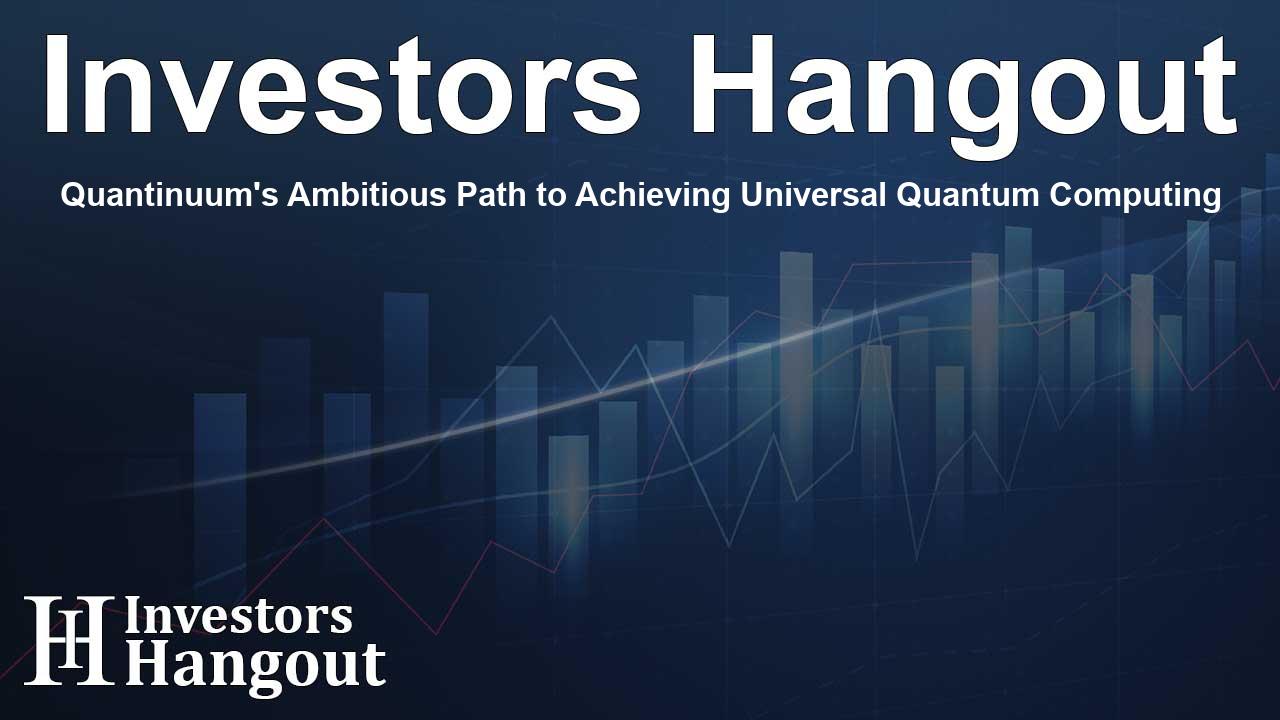Quantinuum's Ambitious Path to Achieving Universal Quantum Computing

A Practical Roadmap to Fault-Tolerant Quantum Computing
Quantinuum is mapping a clear route forward: thousands of physical qubits working together with hundreds of logical qubits, all held to low error rates. The company’s roadmap sets out how it plans to reach universal, fault-tolerant quantum computing by 2030 and turn steady technical progress into real, sustained capability.
Collaborating with Microsoft
In partnership with Microsoft, Quantinuum has crossed two notable milestones. The team introduced 12 logical qubits and built an end-to-end scientific workflow that combines AI, High-Performance Computing (HPC), and logical qubits. Microsoft calls this “the path to a Quantum Supercomputer.” Together, these steps push practical quantum work closer to day-to-day research and development.
Meet Apollo, Quantinuum’s Fifth-Generation System
At the center of the plan is Apollo, Quantinuum’s fifth-generation quantum computer. It’s designed to be fully fault-tolerant and universal, capable of running circuits with millions of gates. Apollo is intended to connect scientific advantage to commercial use—letting companies and researchers pursue larger, longer, and more reliable workloads.
Leadership, Proof, and What Comes Next
Quantinuum positions itself as an industry leader with a credible route to large-scale scientific and commercial applications, a point CEO Dr. Rajeeb Hazra has underscored. The company keeps its progress visible through published data and peer-reviewed papers, signaling both rigor and momentum. As Dr. Hazra put it, “We are the only company with a clear and demonstrable path that leverages quantum computing.” For customers and partners worldwide, that message aims to build confidence in the journey to universal, fault-tolerant quantum computing.
Core Technologies That Anchor the Roadmap
The plan rests on Quantinuum’s quantum charge-coupled device (QCCD) architecture. It includes a universal gate set and high-fidelity physical qubits, engineered to support dependable logical qubits. The combination targets performance and reliability where it matters most.
Opening New Scientific Fronts
Next up is Helios, Quantinuum’s forthcoming system, which is aimed at delivering enough logical qubits to drive breakthroughs in scientific and mathematical work. The potential influence spans finance, chemistry, and computational biology. Based on Quantinuum’s experience, new applications for global enterprises and governments are expected to appear quickly in the coming months.
Recent Milestones and a Clearer Vision
Today, Quantinuum highlights its collaboration with Microsoft in achieving 12 logical qubits on the upgraded 56-qubit System Model H2. That’s a substantial jump from the four logical qubits reached only months earlier. The H1 model also enabled the first chemistry simulation using reliable logical qubits together with AI and HPC, demonstrating accuracy that points toward trustworthy, scaled studies.
Integrating Advanced Quantum Technologies
Quantinuum has also integrated its InQuanto™ computational quantum chemistry software with Azure Quantum Elements, making it available for customer access via private preview. Dr. Krysta Svore, Technical Fellow and VP of Advanced Quantum Development at Microsoft Azure Quantum, framed the effort as an important move toward hybrid supercomputing solutions that blend classical, AI, and quantum capabilities.
Preparing for What’s Next
Enterprises looking to stay ahead are beginning to fold quantum strategies into their long-term plans, aligning quantum systems with classical computing and next-generation AI. Quantinuum, among the first to offer H-Series devices commercially via Microsoft Azure, has opened the door for more organizations to start doing hands-on work now.
Outlook
Quantinuum has stacked up milestones in recent years—from hardware fidelity gains to demonstrations of scale—and is positioned to keep moving the field forward. If progress continues on this track, industries worldwide can expect meaningful shifts powered by quantum technologies, with research and real-world use inching closer together.
Frequently Asked Questions
What is Quantinuum’s roadmap aiming to achieve by 2030?
The roadmap targets universal, fault-tolerant quantum computing by 2030, building on thousands of physical qubits, hundreds of logical qubits, and low error rates to support larger and more reliable workloads.
How is Microsoft involved in these developments?
Quantinuum and Microsoft jointly reached 12 logical qubits and created an end-to-end workflow that blends AI, HPC, and logical qubits—steps Microsoft describes as part of “the path to a Quantum Supercomputer.”
What sets the Apollo quantum computer apart?
Apollo is designed to be fully fault-tolerant and universal, with the ability to run circuits comprising millions of gates, linking scientific capability to commercial use.
Which fields could benefit first from these advances?
Quantinuum points to finance, chemistry, and computational biology as areas poised to benefit, with additional applications for enterprises and governments expected to emerge in the coming months.
How can organizations get started and prepare?
Businesses can begin by incorporating quantum strategies into long-term plans, aligning quantum with classical computing and next-generation AI. Access to Quantinuum’s H-Series devices via Microsoft Azure makes early exploration more practical.
About The Author
Contact Olivia Taylor privately here. Or send an email with ATTN: Olivia Taylor as the subject to contact@investorshangout.com.
About Investors Hangout
Investors Hangout is a leading online stock forum for financial discussion and learning, offering a wide range of free tools and resources. It draws in traders of all levels, who exchange market knowledge, investigate trading tactics, and keep an eye on industry developments in real time. Featuring financial articles, stock message boards, quotes, charts, company profiles, and live news updates. Through cooperative learning and a wealth of informational resources, it helps users from novices creating their first portfolios to experts honing their techniques. Join Investors Hangout today: https://investorshangout.com/
The content of this article is based on factual, publicly available information and does not represent legal, financial, or investment advice. Investors Hangout does not offer financial advice, and the author is not a licensed financial advisor. Consult a qualified advisor before making any financial or investment decisions based on this article. This article should not be considered advice to purchase, sell, or hold any securities or other investments. If any of the material provided here is inaccurate, please contact us for corrections.
